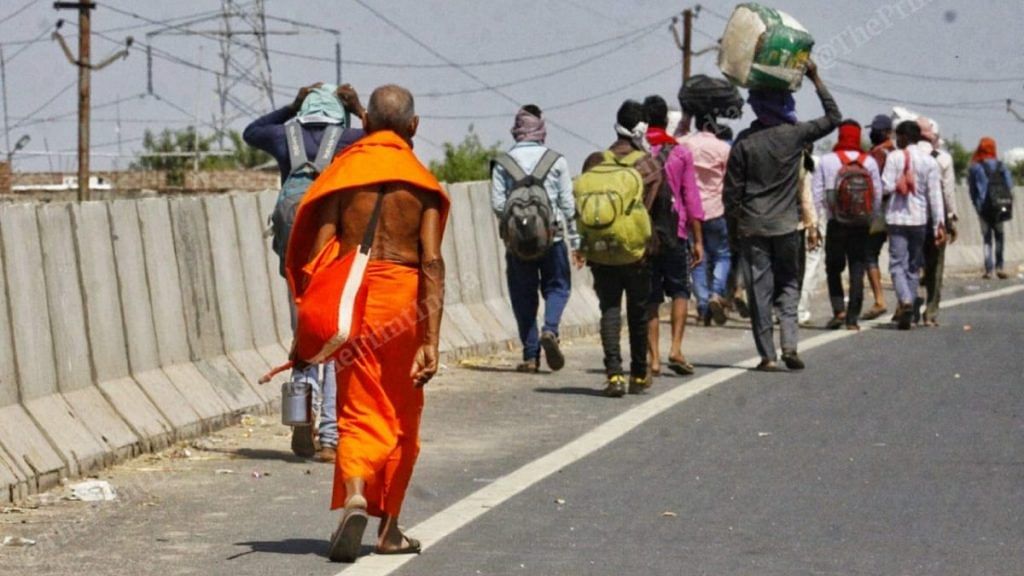New Delhi: Hundreds of thousands of migrant labourers who left for their villages on foot with hardly any money or food after an unprecedented nationwide lockdown on 24 March could have been saved some of their misery had the Modi government expedited the implementation of the One Nation One Ration Card (ONORC) scheme announced last June.
The government did step in after it faced widespread criticism, and provided food, temporary shelter and medical aid to the lakhs of workers who were in transit, to prevent infection because of overcrowding in bus terminals and on state and national highways.
But, according to food security experts, the chaos could have been somewhat avoided if the ONORC scheme was functional across the country and labourers had this card. The facility allows a beneficiary to access food grains that they are entitled to under the National Food Security Act (NFSA), 2013, from any fair-price shop in the country. The NFSA covers 80 crore people.
Currently, the scheme is operational in only 12 states and the Department of Food and Public Distribution intends to cover all states and union territories by June 2020.
Ravi Kant, Secretary, Department of Food and Public Distribution, tells ThePrint that the project is on track. “We have set a June 2020 deadline to cover all states and union territories under ONORC. We are going ahead as per schedule.”
Also read: Magic shows, PT, counselling — this Delhi shelter is taking special care of migrant workers
The technology of ensuring everyone has enough to eat
It was to ensure that the poor do not go hungry irrespective of where they are that the department had launched the scheme, which offered nationwide portability of ration cards, on a pilot basis last August in clusters of two states.
An official in the Department of Food and Public Distribution said that ONORC involves bringing the data of all ration card holders on one server and integrating the existing public distribution system (PDS) information from states and union territories with the central system. This, the official added, will allow beneficiaries to lift their food grains from any fair-price shop where they live, using the same ration card.
However, this would only be possible once the card holder provided biometrics for Aadhar authentication on ePoS (electronic point of sale) devices at fair price shops.
Asked if states are facing issues with portability in the 12 states because of poor internet connectivity in the interior areas, Ravi Kant said there were some teething problems initially, but now these issues have been sorted. “It is running smoothly in the 12 states since January 2020,” he added.
Also read: Modi’s lockdown has worked, but now India needs Sanjivani Booti, not Hanuman’s mountain
For the migrants
According to the 2011 Census, 1.4 crore people in the country had migrated, both within and outside the states, for work.
Addressing a press conference last year, food minister Ram Vilas Paswan had said that the scheme was conceptualized specifically to cover migrant labourers and daily wagers.
Government sources told ThePrint that ONORC was discussed in one of the meetings of the empowered group constituted to come up with comprehensive strategies to deal with different issues pertaining to the Covid-19 pandemic.
Former chief economic adviser Arvind Subramaniam had also recommended the portability of food security benefits in the 2017 Economic Survey to address high labour migration in India.
